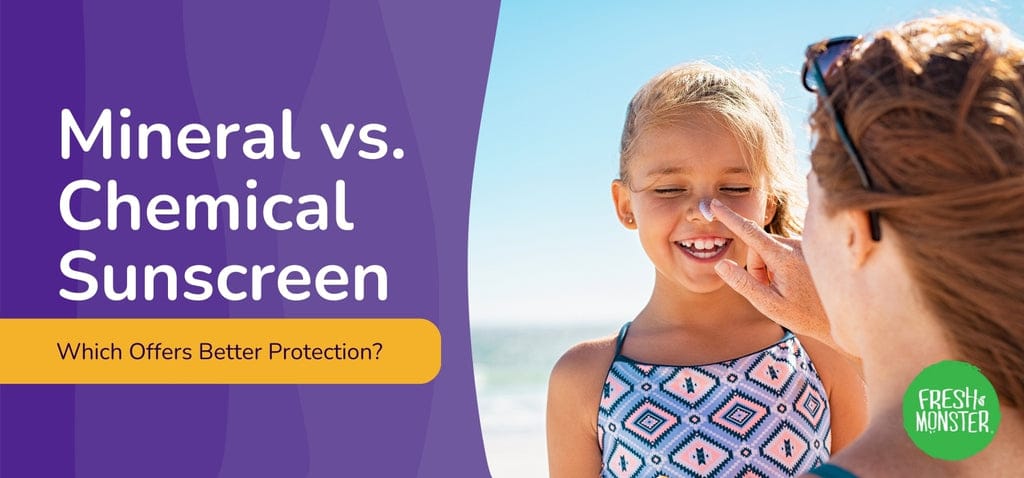Are you trying to make your mind up about the whole mineral vs chemical sunscreen debate? Here, we examine the facts to help you make your mind up.
—————————–
Have you ever been standing deliberating with yourself in a drug store aisle with a bottle of mineral sunscreen in one hand and a bottle of chemical sun lotion in the other? It’s a common occurrence, as the mineral vs chemical sunscreen question is one that has been talked about for many years now.
However, some people only have a problem deciding because of a lack of accurate information. You see, when you actually look into the facts of the matter, a clear winner is revealed.
Mineral vs Chemical Sunscreen – The Many Benefits
One of the major keys to keeping your skin looking young is the daily use of sunscreen. When comparing mineral vs chemical sunscreen, the first advantage the former has over the latter is just how gentle it is. Chemical sunscreens often contain fragrances and other harmful chemicals like oxybenzone and octinoxate that can irritate sensitive skin.
Some chemical brands are also known to cause breakouts due to the fact that they need to be absorbed before they work. On the other hand, zinc oxide-based sunscreen is most often non-comedogenic and never has to actually go past the skin’s surface.
Furthermore, there are various other advantages that come with switching to a mineral product. Let’s run the rule over the main ones.
- Working from the First Minute – A reason to seriously consider mineral sunscreens over chemical brands is that they work from minute one. As soon as mineral sun creams are applied to the skin, they give you protection. There’s no waiting for absorption, so you can go straight out into the sun with complete confidence.
- Broad-Spectrum Protection – How about the fact that mineral sunscreen also provides a barrier against both UVA and UVB rays? UVB rays come from direct sunlight, whereas UVA rays can penetrate clouds, meaning that you still need to wear protection when it’s not sunny outside.
Mineral products have you covered either way, whereas some chemical brands sadly don’t safeguard against both types of rays.
- It’s Reef-Safe – You may or may not know that there’s an ecological impact that comes from using chemical sunscreens. As much as 14,000 tons of chemical sunscreens enter the oceans each year, decimating the precious marine habitats that are our coral reefs.
Zinc oxide, on the other hand, occurs in nature, meaning that sun protection products that use it as their active ingredient should be the choice of eco-conscious consumers.
- It’s More Photo-Stable – The sun’s rays can be pretty intense at certain times of the day, which means that the sunscreen you use needs to be able to withstand them without degrading. Zinc oxide is more photostable than many chemical brands, meaning that the protection it provides can be more comprehensive and long-lasting.
This means that mineral products lose their efficacy more slowly, although it’s still recommended to reapply them every two hours.
Mineral vs Chemical Sunscreen – Making What is an Important Choice
When you’re attempting to decide between mineral and chemical sunscreen products, it often comes down to you and your personal needs. However, irrespective of whether you have sensitive skin issues, ecological concerns or you’re simply trying to determine the most effective option, all the evidence points toward mineral products being the better option.
It’s gentler than chemical brands, more photo-stable, more eco-friendly and starts working from the instant you put it on. Hard to argue against switching over, wouldn’t you say?

